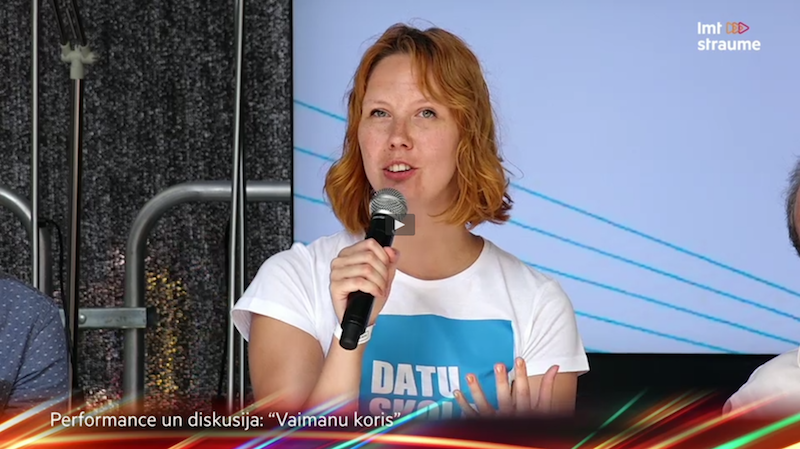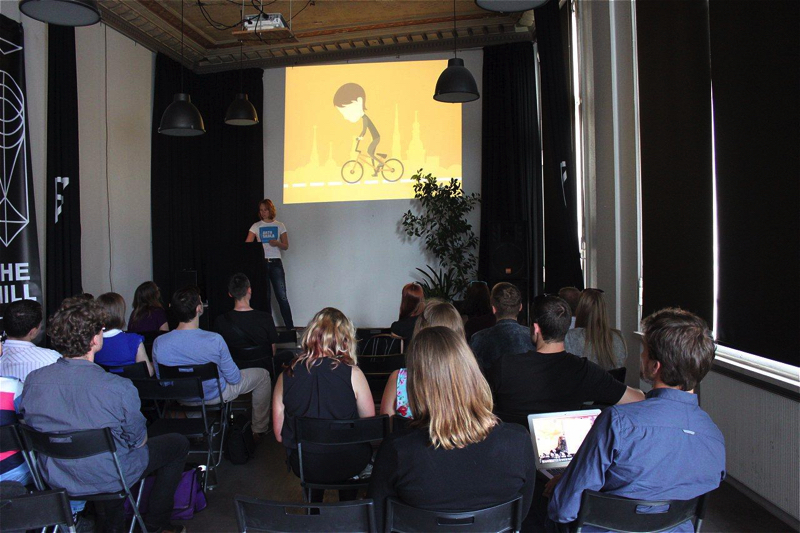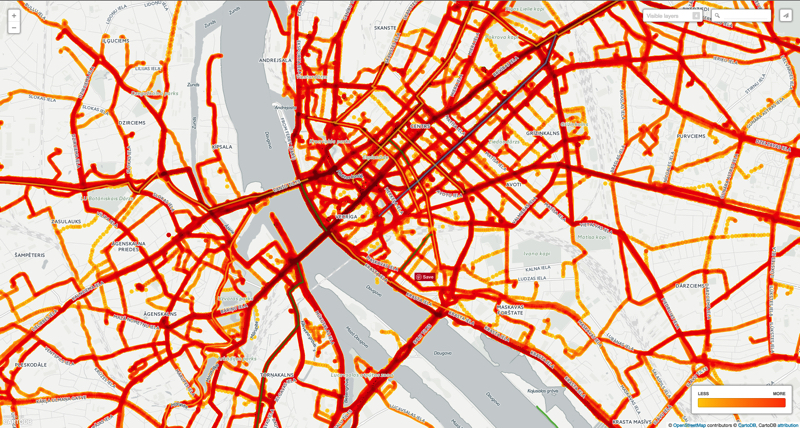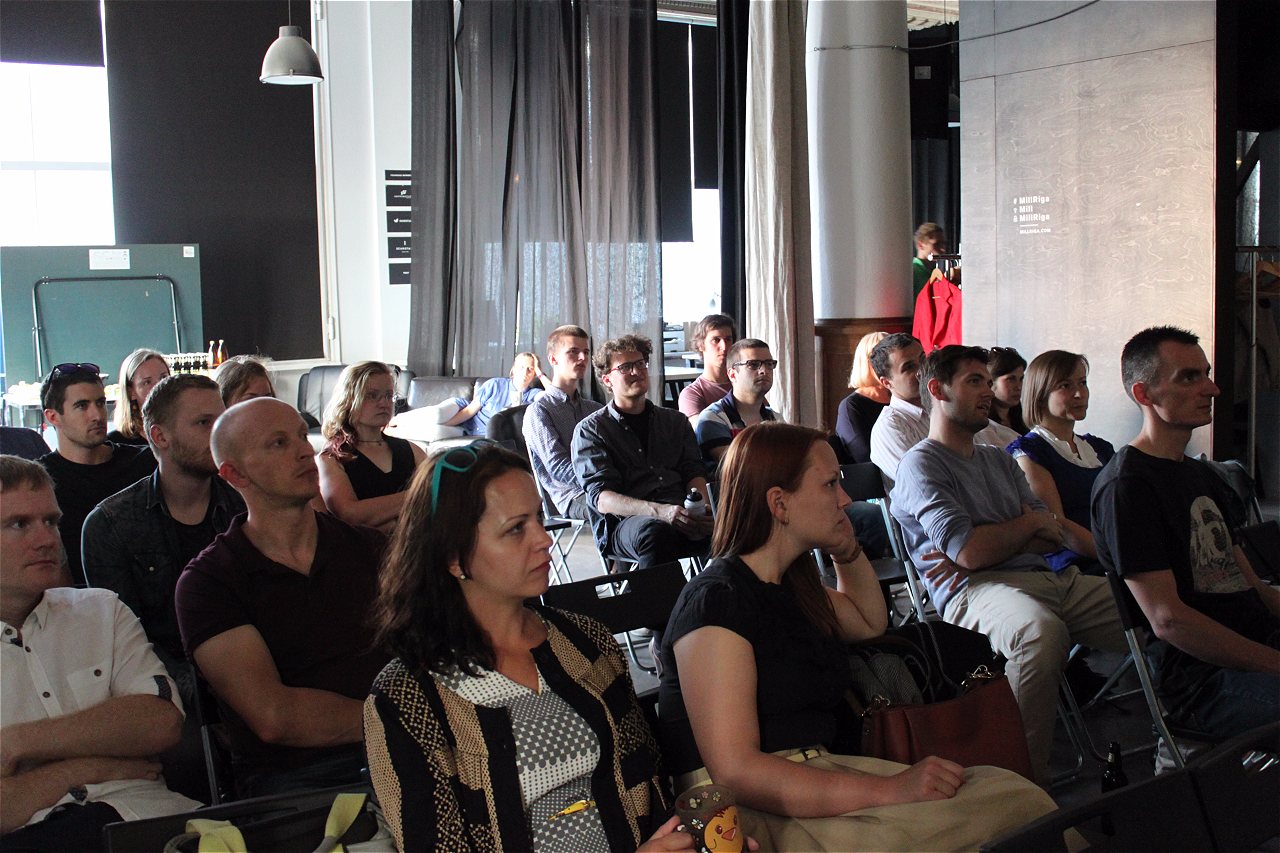In Latvia, a plea for citizens to push for data-driven public policy
Cedric Lombion - August 18, 2016 in Event report, Fellowship
Data is the core substance required for evidence-based policies and decision-making. “How do we make Latvia the country that makes most use of data to inform its decision-making?” was the question that Latvian MP’s and civil-society representatives tried to answer during 1,5 hours on the hot morning of July 2nd, at the occasion of the second edition of the national political festival, LAMPA.

This festival, funded by the DOTS foundation, aims to clarify the concept of open data which is still new for Latvian law-makers, who often confuse it with public data. The discussions there serve as a good encouragement to give data to the hands of regular citizens and encourage them to participate in national, evidence-based policy making.
The roadblocks to evidence-based decision-making
None of the participants denied the importance of evidence in decision-making. Nevertheless, many alarming issues were detected. Open data, and engaging civil society in its use, was seen as one of the best short-term solutions for producing more thoughtful policy-making.
First, the State Controller, Elita Krumina, raised the issue that evidence – based on statistics, research documents and research papers – needs to be revised every year. There are many policies based on outdated evidence, even though the real situation has actually changed.
Another issue the Head of State Secretary Office, Martins Krievins, illuminated was that oftentimes decisions are made quickly and there is no time for lengthy research and data-gathering. At the same time, Krumina suggested that a great deal of research is conducted, but the benefit is small: “These papers repeat already-known principles of good governance without giving much data-driven solutions,” she explained.
The problem of trust
“The problem is, we don’t trust many evidence,” says Krievins. He gave an example of the census results: “First, everyone said that the data is incorrect because more people left the country than was counted. Then, when the state conducted an outsourced census, the first question was – whom did the hired company pay in bribes?”
Krievins said that data can be easily manipulated based on policy goals, whereas parliamentarian and experienced politician, Sergejs Dolgopolovs, said that he thinks it’s important to set goals and assess all the risks in order to make better decisions.
Later, Krievins admitted that there are many complex issues with evidence that may encourage a bad decision to be made: “Everyone realises that small schools in the countryside are expensive – the evidence is clear. Nevertheless, schools in the countryside are cultural centres for the local area, hosting many social events. There would be a broad social impact if small schools were to be closed.”
Ernests Jenavs, the founder and CEO of Edurio, an app that helps users to make evidence-based decisions in education, said that evidence should be separated from ideology: “Data should be analysed by independent people, not politically biased decision-makers,” says Jenavs. He suggested opening data, so that politically independent civil society members can suggest evidence-based solutions. Nika Aleksejeva, the Head of School of Data Latvia, agreed with this point, adding that there is a need for enhancing data-literacy in Latvian society and encouraging people to use open data.
Technology allows us to engage with society faster and more cheaply than before, agreed both Janevs and Aleksejeva.
The discussion was concluded by a unanimous message from the panel – there should be much more pressure from civil society for evidence-based decisions in government, and data should be open for everyone to be able to contribute to this decision-making.
Video (in Latvian): link
| Infobox | |
|---|---|
| Event name: | Festival “Lampa”, discussion “How to make Latvia the greatest country of evidence based policy-making?” |
| Event type: | Roundtable |
| Event theme: | open data and data-driven public policy |
| Description: | Possibilities to execute more evidence based and data-driven policies in Latvian government |
| Speakers: | Ernests Jenavs (the founder and CEO of Edurio) Nika Aleksejeva (the Head of School of Data Latvia) Sergejs Dolgopolovs (parliamentarian), Elita Krumina (the State Controller), Ilze Vinkele (parliamentarian), Martins Krievins (Head of State Secretary Office), Valts Kalnins (The lead researcher at think-tank PROVIDUS) |
| Partners: | NA |
| Location: | Cesis, Latvia |
| Date: | July 2 |
| Audience: | cycling society representatives, analysts, others |
| Number of attendees | NA |
| Gender split: | NA |
| Duration: | 1 hour |




